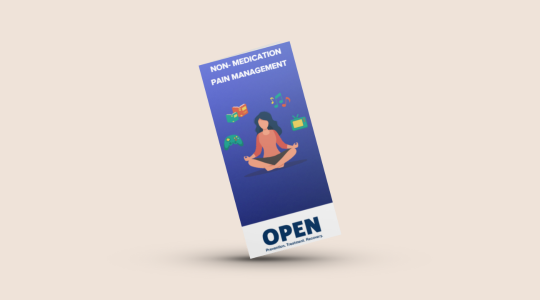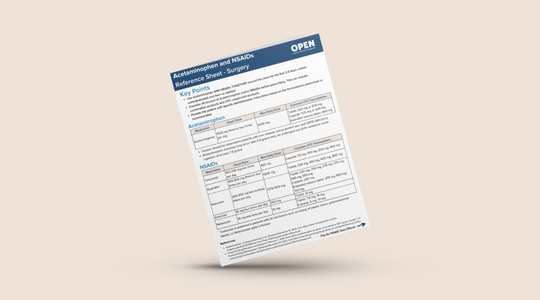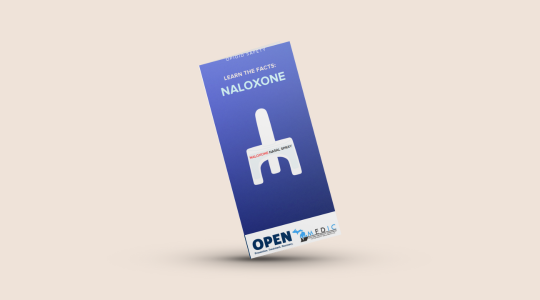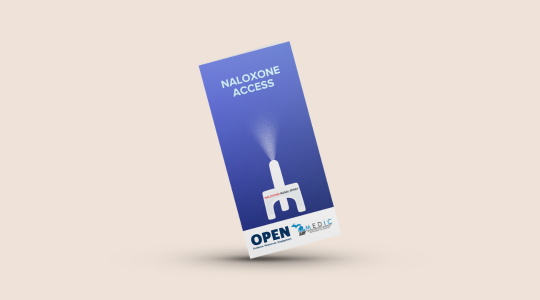Dear OPEN Community,
It has come to our attention that Michigan Pain Consultants, a large pain management group with multiple practices in West Michigan, has filed for bankruptcy and will be closing in August 2024.
This closure will increase demand for complex pain management services from primary care clinicians in the region. The Overdose Prevention Engagement Network (OPEN), with support from the Michigan Center for Clinical Systems Improvement (MI-CCSI), would like to share practice tips and resources to support you in responding to this challenging situation and enable safe transitions in care for affected patients.
Utilize OPEN’s free same-day consultation service for clinicians. Our experts are available to support primary care, community providers, and hospital staff in Michigan who are treating patients with substance use disorders or complex pain management needs. Our team can answer clinicians’ general questions about treatment and resources and provide feedback and guidance on treatment plans.
OPEN’s support services include a wide variety of free programs. Explore our full program portfolio for free offerings from co-branded educational materials to naloxone vending machines.

Learn how to help manage or reduce your pain and anxiety through various techniques.

Learn more about prescribing acetaminophen and NSAIDs for pain management after surgery.

Learn about naloxone and how to safely administer it.

Find free Naloxone near you in Michigan.
August 21, 2024
@ 1:00 pm – 2:00 pm
1.0 CE Credit Pending
CME, Social Work and MCBAP CE
Presenter:
Aaron Dora-Laskey, MD, MS
Many patients present to the emergency department for addiction treatment and begin a medication for opioid use disorder (MOUD). Ensuring patients have a care pathway for continued support after leaving the acute care setting is key to their success but can be challenging. Join us to learn real-word implementation strategies to adopt in your practice.
September 4, 2024
@ 12:00 pm – 1:00 pm
1.0 CE Credit Pending
CME, Social Work and MCBAP CE
Presenter:
Alex Peahl, MD, MSc
Substance use and substance use disorders in pregnancy are common and linked with multiple obstetric and neonatal adverse outcomes. Ideally, all pregnant patients should be screened, and those with positive screens should be promptly diagnosed and treated to avoid the morbidity and mortality associated with continued substance use during pregnancy. Join us to learn more about evidence-based strategies for identifying and managing patients with substance use during pregnancy.
September 16, 2024
@ 12:00 pm – 4:00 pm
4.0 CME Credits Available
BCBSM will provide a $250 incentive to Primary Care Providers (Physicians and Advanced Practice Professionals) who attend this MOUD training. The incentive will be limited to the first 250 registered primary care providers, so please register early to ensure a spot.
September 25, 2024
@ 12:00 pm – 1:00 pm
1.0 CE Credit Pending
CME, Social Work and MCBAP CE
Presenter:
Liza Hutchinson, MD
It is well known that the opioid crisis affects all parts of society. However, certain communities experience notable disparities in morbidity and mortality from Opioid Use Disorder (OUD). This presentation will review the data around disparities in OUD outcomes and treatment among disadvantaged groups and discuss clinical approaches and models of care to address these inequities.
November 15, 2024
@ 12:00 pm – 1:00 pm
1.0 CE Credit Pending
CME, Social Work and MCBAP CE
Presenter:
Alex Peahl, MD, MSc
Childbirth, whether vaginal or via cesarean section, can come with significant pain that requires effective management to ensure patient well-being and recovery. The way we address postpartum pain and the strategies we use, particularly regarding opioid prescriptions, have substantial implications for both immediate and long-term health outcomes. This webinar is designed to guide healthcare providers through the latest evidence-based clinical practice guideline for pain management after childbirth, which promote excellent pain control, reduce harmful opioid prescribing and more equitable, patient-centered care.
What would be helpful to you as a PCP? Send us an email with suggestions.
The Overdose Prevention Engagement Network (OPEN) is a diverse team dedicated to improving lives and reducing harms of substance use. By engaging with individuals, communities, and organizations, we share education and resources to strengthen person-centered prevention, treatment, and recovery.
Explore our full program portfolio for free offerings from co-branded educational materials to naloxone vending machines.
2800 Plymouth Road,
North Campus Research Complex (NCRC)
Building 16
Ann Arbor, MI 48109